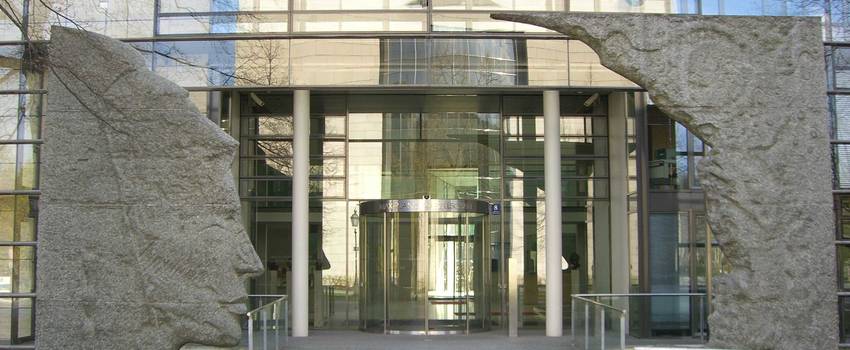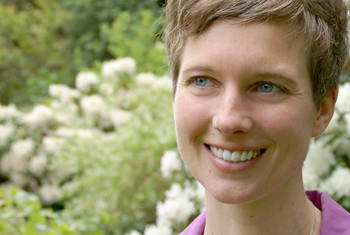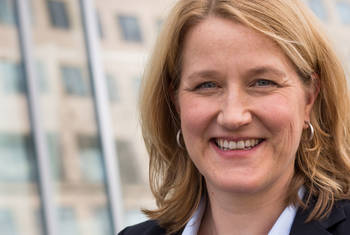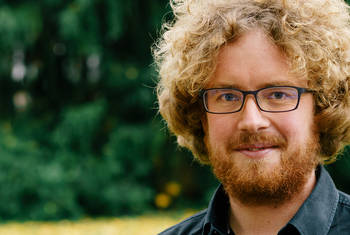Jos Lelieveld What are the Sources and Health Effects of Air Pollution?
Jos Lelieveld is Director of the Atmospheric Chemistry Department at the Max Planck Institute for Chemistry as well as Professor of Atmospheric Physics at the University of Mainz. He acts as Spokesperson of the International Max Planck Graduate School and is a life member of the European Geosciences Union. His research interest includes a focus on global and regional atmospheric chemistry, air quality and climate change. In 2015, he was elected Member of the German National Academy of Sciences Leopoldina.
Area of Research
Atmospheric Chemistry, Atmospheric Physics
since 2000
Director
Max Planck Institute for Chemistry
Atmospheric Chemistry Department
since 2008
Part-time Professor
Cyprus Institute
2004-2013
Managing Director
Max Planck Institute for Chemistry
1996-2000
Professor of Atmospheric Physics and Chemistry
University of Utrecht
1993-1995
Professor of Air Quality
University of Wageningen
1987-1993
Research Scientist
Max Planck Institute for Chemistry
Atmospheric Chemistry Department
1984-1987
Research Scientist
Geosens
Atmosferic Research Department
1990
PhD in Atmospheric Physics and Chemistry
University of Utrecht
Physics and Astronomy Faculty
1984
Doctoral Degree
University of Leiden
Mathematics and Natural Sciences Faculty
1980
Bachelor of Science
University of Leiden
- European Geosciences Union, Lifemember (since 2015)
- German National Academy of Sciences – Leopoldina (since 2015)
- Selection and Evaluation Committe, Institute for Basic Science, S-Korea (since 2013)
- Steering Committee Max Planck Graduate Center Mainz (since 2008)
- Board of the Netherlands Institute for Space Research, SRON (2008-2012)
- Board COSMOS Network (Community Earth System Models) (2007-2012)
- Scientific-Technical Committee of the Executive Board, Karlsruhe Institute of Technology, Chairman Advisory Board of the Atmosphere and Climate Program (since 2006)
- Scientific Steering Committee of the HALO Research Aircraft (since 2003)
- Program Committee Earth Observations of the DLR Space Agency (2003-2008)
- Science Panel on Atmospheric Research of the EU Commission (2003-2005)
- Director of the International Research School COACh (Cooperation on Oceanic, Atmospheric and Climate Change Studies) (1997-2000
- Advisory Board Institute for Tropospheric Research (IFT), Leipzig (1996-2003)
- Advisory Board of Tellus B (since 1996)
- Committee on Atmospheric Chemistry and Global Pollution of the International Association of Meteorology and Atmospheric Sciences (1994-2002)
- Center for Clouds, Chemistry and Climate, Scripps Institution of Oceanography, University of California, San Diego (since 1992)
- American Meteorological Society (since 1991)
- American Geophysical Union (since 1987)
Prizes
- Election German National Academy of Sciences – Leopoldina (2015)
- Presidential Plaquete for the Advancement of Science in the Republic of Cyprus (2013)
- Yuval Ne’eman Distinguished Lecturer in Geophysics, Tel Aviv University (2010)
- Honorary Professor in Geophysics, King Saud University, Riyadh (2010)
- Institute Professor at the Cyprus Institute (2010)
- European Research Council Advanced Research Grant (2008)
- Hubert Curien lecturer at the Cyprus Institute (2008)
- Citation Academy of Athens, Greece, for achievements in ozone research (2007)
- Distinguished Lecturer, Weizmann Institute, Israel (2005)
- Harold Schiff Lecturer, York University, Toronto (2002)
- Highly Cited Researcher, ISI Web of Knowledge (since 2001)
- Professor of the Year 2000, University of Utrecht (2000)
- Editor's Citation for Excellence in Refereeing (2000)
- J.W. van Oostrom Meyjes Prize (1994)
 © Maximilian Dörrbecker
© Maximilian Dörrbecker
Max Planck Society
"The Max Planck Society is Germany's most successful research organization. Since its establishment in 1948, no fewer than 18 Nobel laureates have emerged from the ranks of its scientists, putting it on a par with the best and most prestigious research institutions worldwide. The more than 15,000 publications each year in internationally renowned scientific journals are proof of the outstanding research work conducted at Max Planck Institutes – and many of those articles are among the most-cited publications in the relevant field." (Source)
Institute
Max Planck Institute for Chemistry
Current research at the Max Planck Institute for Chemistry in Mainz aims at an integral understanding of chemical processes in the Earth system, particularly in the atmosphere and biosphere. Investigations address a wide range of interactions between air, water, soil, life and climate in the course of Earth history up to today´s human-driven epoch, the Anthropocene. The Max Planck Institute for Chemistry is one of the two oldest institutes of the Max Planck Society. It was founded in 1912 as the Kaiser Wilhelm Institute for Chemistry in Berlin, and it was relocated to Mainz in 1949. Particularly well-known scientists in the Institute´s history are the Nobel laureates Richard Willstätter, Otto Hahn, and Paul Crutzen. In honor of the former director and president of the Max Planck Society, the Max Planck Institute for Chemistry also carries the epithet Otto Hahn Institute. (Source)
Map
Mankind is increasingly polluting the atmosphere across the planet. The research detailed in this video is interested in the questions of how this pollution is generated and how it affects the health of people. The investigators found, as JOS LELIEVELD explains, that air pollution leads to millions of premature deaths since it causes, for instance, fatal cerebrovascular and respiratory diseases. The researchers also identified a variety of natural and human sources for this pollution, such as ammonia emissions through agriculture in Europe or the widespread use of cooking fires in South East Asia. Their findings indicate means by which air pollution could effectively be reduced worldwide.
LT Video Publication DOI: https://doi.org/10.21036/LTPUB10393
The Contribution of Outdoor Air Pollution Sources to Premature Mortality on a Global Scale
- Jos Lelieveld, John Evans, Mohamed Fnais, Despina Giannadaki and Andrea Pozzer
- Nature
- Published in 2015









